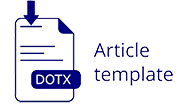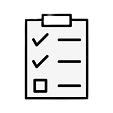DEBATE, SELF-EFFICACY, AND DECISION MAKING IN EAST JAVA ENGLISH COMPETITION
Abstract
Keywords
Full Text:
PDFReferences
Aclan, E. M., & Aziz, N. H. A. (2014). Exploring Parliamentary Debate as a Pedagogical Tool to Develop English Communication Skills in EFL/ESL Classrooms. International Journal of Applied Linguistics & English Literature, 4(2), 1-16. https://doi.org/10.7575/aiac.ijalel.v.4n.2p.1
Ahmad, A., & Safaria, T. (2013). Effects of Self-Efficacy on Students’ Academic Performance.Journal of Educational Health and Community Psychology, 2(1), 22-29.
Akindele, D. O. (2012). Enhancing Teamwork and Communication Skills Among First-Year Students at the University of Botswana. TESOL Journal, 6(1), 2–15.
Altunkaya, H. (2017). The Impact of Activity-Based Oral Expression Course on Speech Self-Efficacy of Students. Journal of Education and Training Studies, 6(1), 137-150. https://doi.org/10.11114/jets.v6i1.2832
Lutfauziah, A. (2020). Learning Methods Of Decision Making Skills: Discussion, Assignment, And Practice Case Study in Islamic Boarding School of Jagad ’Alimussirry, Indonesia. Education and Human Development Journal, 5(1), 1–8. https://doi.org/10.33086/ehdj.v5i1.1496
Bakti, A., Sofyan, D., & . E. (2019). The Correlation Between Students’ Self-Efficacy And Their Listening Comprehension. Journal of English Education and Teaching, 3(1), 66–78. https://doi.org/10.33369/jeet.3.1.66-78
Defriyanto, & Sugiharta, I. (2020). Correlation of Self-Efficacy with Decision Making Continuing Studies in Students at Islamic Based Universities. KONSELI : Jurnal Bimbingan Dan Konseling (E-Journal), 7(1), 07–12. https://doi.org/10.24042/kons.v7i1.6114
Haryanto, Budi, E., & As’ad, A. (2019). Assessing Speech Through English Debate To Improve Speaking Ability Of University Students. Edulinga,6(1), 41-50
Husna, A. (2017). The Role Of Self-Efficacy In Writing Achievement Of Indonesian Senior High School Students.Edulingua.4(2), 51-58.
Latief, M. A. (2019). Research Methods on Language Learning: An Introduction (7th edition): Universitas Negeri Malang.
Leslie, B. B., & Moilanen, J. (2010). Advancing Self-Efficacy and Intuitive Decision-Making Calls to Action. Adult Education Research Conference, 1–3.
Melayanti, N. L. (2020). The Correlation Between Self-Efficacy And Speaking Skill Of The Tenth Grade Students Of Sma N 6 Denpasar In Academic Year 2019/2020. Journal on Studies of English Language Teaching (JOSELT), 1(2), 22–33.
Pallant, J. (2011). A Step by Step Guide to Data Analysis Using the SPSS Program. Mc-Graw-Hill
Retnam, E., Asmuni, A., & Hamzah, S. R. (2018). Parental Support and Coach Influence towards Career Decision Making Self-Efficacy among National Student-Athletes in Malaysia. International Journal of Academic Research in Business and Social Sciences, 8(9), 917-934. https://doi.org/10.6007/IJARBSS/v8-i9/4665
Santos, A., Wang, W., & Lewis, J. (2018). Emotional intelligence and career decision-making difficulties: The mediating role of career decision self-efficacy. Journal of Vocational Behavior, 107, 295–309. https://doi.org/10.1016/j.jvb.2018.05.008
Strait, L. P. (2008). Academic Debate As A Decision- Making Game: Inculcating The Virtue Of Practical Wisdom.Journal:Contemporary Argumentation and Debate,29(37), 1-36.
Suprapmanto, J. (2021). Analisis Permasalahan Pembelajaran Daring selama Pandemi Covid 19 dan Solusinya.Jurnal Belaindika: Pembelajaran dan Inovasi Pendidikan,3(2), 15-19.
Taherdoost, H. (2016). Validity and Reliability of the Research Instrument; How to Test the Validation of a Questionnaire/Survey in a Research. SSRN Electronic Journal,3(5),28-36. https;//doi.org/10.2139/ssrn.3205040
Tiasadi, K. (2020). Debating practice to support critical thinking skills: Debaters’ perception. AKSARA: Jurnal Bahasa Dan Sastra, 21(1), 1–16. https://doi.org/10.23960/aksara/v21i1.pp1-16
Vedpuria, N. K., Halim, T., & Kumar, D. H. (2021). Decision-Making and Personality Difficulties among College Students. Psychology And Education, 5, 2395-2399.
Wu, Y.-J., Kiefer, S. M., & Chen, Y.-H. (2020). Relationships between learning strategies and self-efficacy: A cross-cultural comparison between Taiwan and the United States using latent class analysis. International Journal of School & Educational Psychology, 8(sup1), 91–103. https://doi.org/10.1080/21683603.2019.1566104
Wulandari, A., & Ena, O. T. (2018). Using Debate Activities to Develop Indonesian High School Students’ Speaking Skills. Language and Language Teaching Journal, 21(Supplement), 12–20. https://doi.org/10.24071/llt.2018.Suppl2102
DOI: https://doi.org/10.34001/edulingua.v9i1.2737
Article Metrics
Refbacks
- There are currently no refbacks.

Ciptaan disebarluaskan di bawah Lisensi Creative Commons Atribusi 4.0 Internasional.











